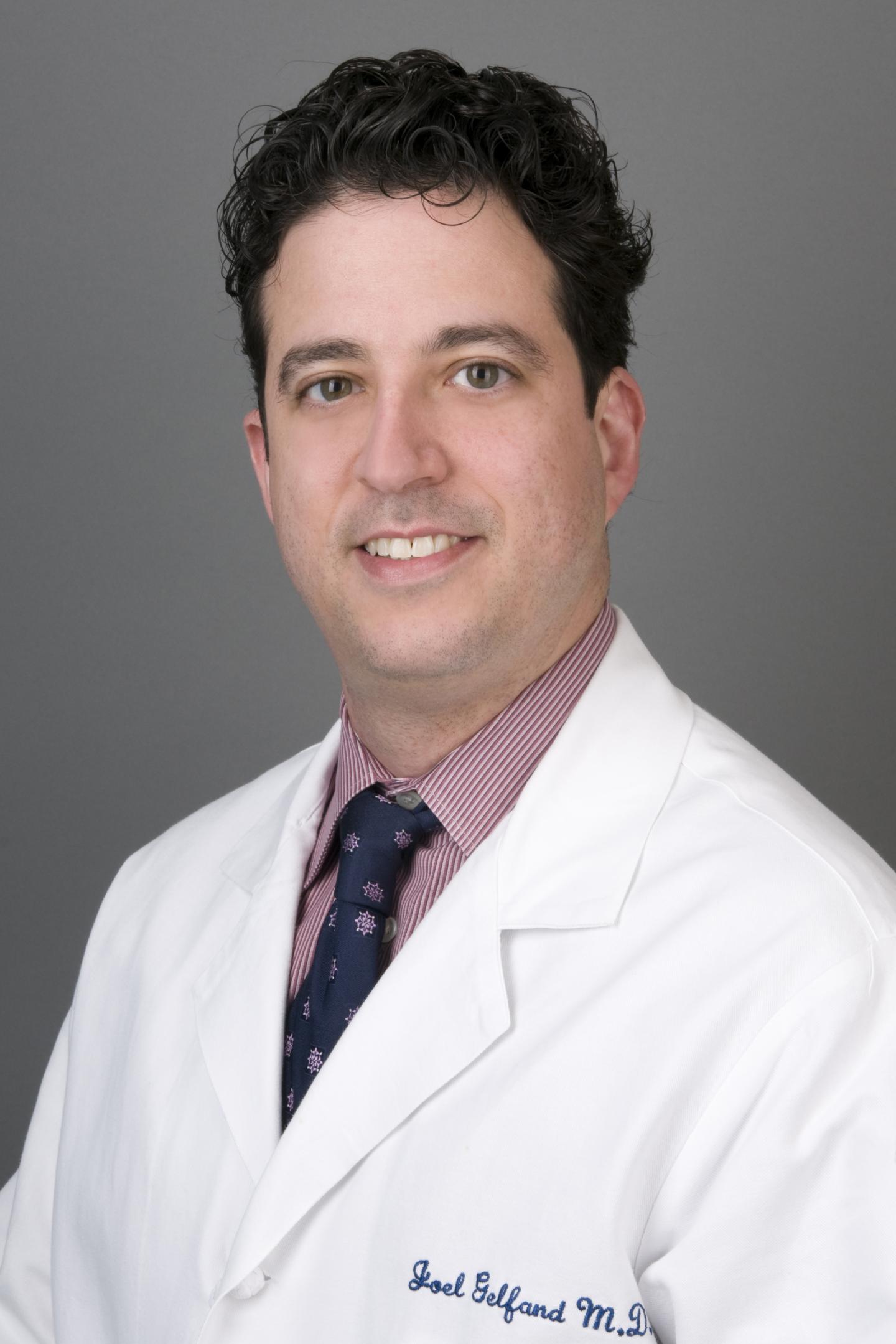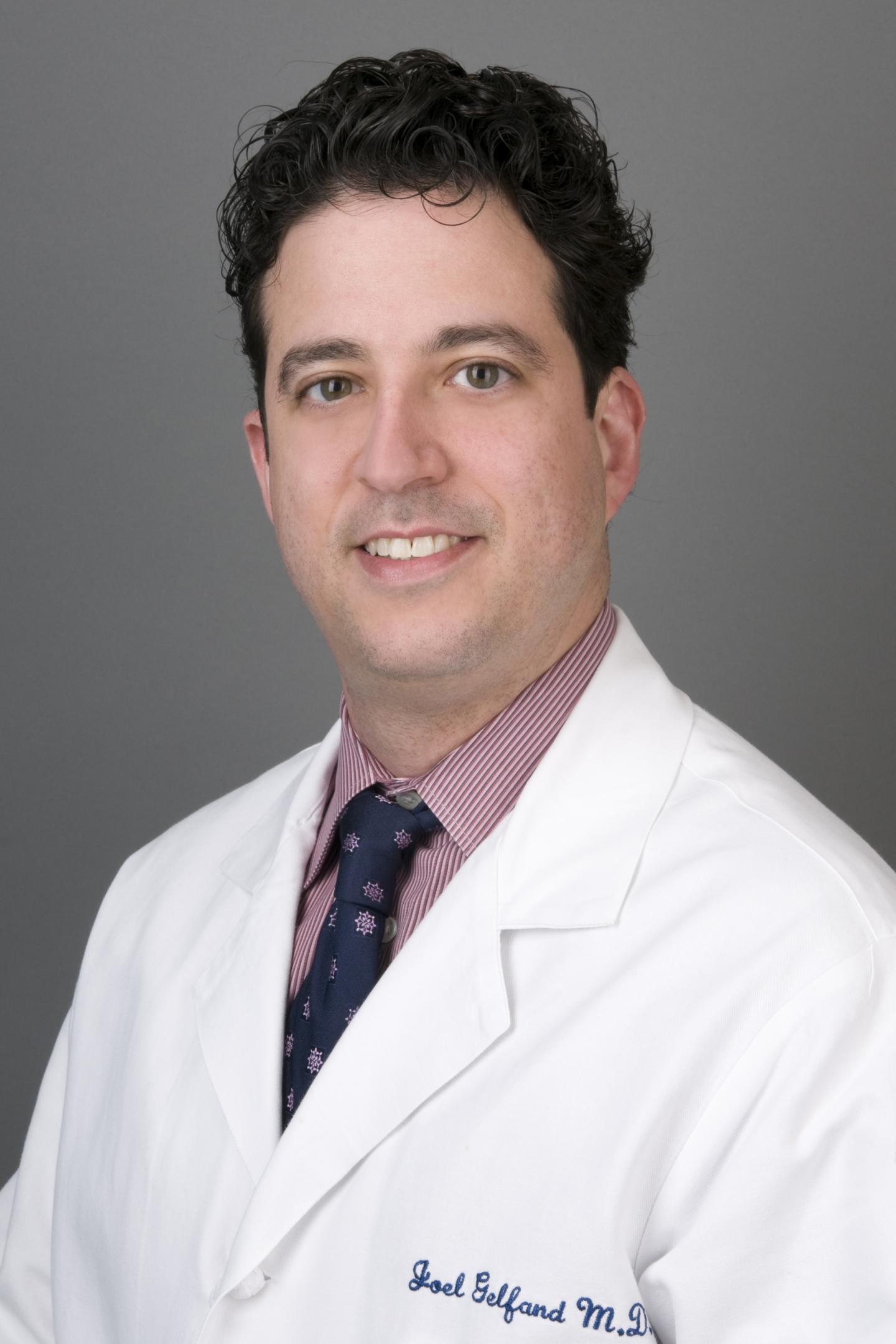
Credit: Penn Medicine
PHILADELPHIA – A research team at the University of Pennsylvania will receive $8.6 million in funding to study the effectiveness of home-based phototherapy treatments for psoriasis compared to treatments that require a visit to a doctor's office three times a week. The Patient-Centered Outcomes Research Institute (PCORI) awarded the funding to Joel M. Gelfand, MD MSCE, a professor of Dermatology and Epidemiology in the Perelman School of Medicine at Penn, who will lead the project.
Psoriasis is a common, chronic autoimmune disease affecting more than eight million Americans with painful, thick, red patches on the skin that often itch and bleed. It also has profound effects on health-related quality of life, and in moderate to severe cases, it carries an increased risk of heart attack, stroke, and premature death. African Americans are more likely to experience severe psoriasis compared to whites, but also are less likely to receive effective treatments.
Ultraviolet B phototherapy is a preferred treatment, because systemic medications can have serious side effects. This type of phototherapy involves exposing the skin to ultraviolet light on a regular basis so Ultraviolet B rays penetrate the skin and slowing the growth of affected skin cells. The process requires treatment in an office three times per week for 12 weeks, which is a substantial burden for patients, as it pulls time away from work and family obligations and adds to transportation costs.
"Home-based phototherapy represents a more patient-centered approach, but there is a lack of data comparing its effectiveness to that of the office-based treatments," Gelfand said. "This has led to decisional uncertainty from patients, dermatologists, and insurers."
Gelfand's team will conduct a randomized, controlled study in 1,050 patients age six and older to compare the effectiveness and safety of 12 weeks of home-based versus office-based phototherapy. The study will include 20 to 40 sites across the country. It will also evaluate whether patients with fairer skin are more prone to problems with tolerability, such as burns from increased light penetration, and whether those with darker skin are more prone to problems with effectiveness due to decreased UV light penetration.
"This project was selected for PCORI funding not only for its scientific merit and commitment to engaging patients and other healthcare stakeholders in a major study conducted in real-world settings, but also for its potential to answer an important question about phototherapy and psoriasis and fill a crucial evidence gap," said PCORI Executive Director Joe Selby, MD, MPH. "We look forward to following the study's progress and working with Penn to share its results."
Gelfand's study was selected for funding through PCORI's Pragmatic Clinical Studies Initiative, an effort to produce results that are broadly applicable to a diverse range of patients and care situations and can be more quickly taken up in routine clinical practice.
###
PCORI is an independent, nonprofit organization authorized by Congress in 2010. Its mission is to fund research that will provide patients, their caregivers, and clinicians with the evidence-based information needed to make better-informed healthcare decisions. For more information about PCORI's funding, visit http://www.pcori.org.
Gelfand's award has been approved pending completion of a business and programmatic review by PCORI staff and issuance of a formal award contract.
Penn Medicine is one of the world's leading academic medical centers, dedicated to the related missions of medical education, biomedical research, and excellence in patient care. Penn Medicine consists of the Raymond and Ruth Perelman School of Medicine at the University of Pennsylvania (founded in 1765 as the nation's first medical school) and the University of Pennsylvania Health System, which together form a $6.7 billion enterprise.
The Perelman School of Medicine has been ranked among the top five medical schools in the United States for the past 20 years, according to U.S. News & World Report's survey of research-oriented medical schools. The School is consistently among the nation's top recipients of funding from the National Institutes of Health, with $392 million awarded in the 2016 fiscal year.
The University of Pennsylvania Health System's patient care facilities include: The Hospital of the University of Pennsylvania and Penn Presbyterian Medical Center — which are recognized as one of the nation's top "Honor Roll" hospitals by U.S. News & World Report — Chester County Hospital; Lancaster General Health; Penn Wissahickon Hospice; and Pennsylvania Hospital — the nation's first hospital, founded in 1751. Additional affiliated inpatient care facilities and services throughout the Philadelphia region include Good Shepherd Penn Partners, a partnership between Good Shepherd Rehabilitation Network and Penn Medicine.
Penn Medicine is committed to improving lives and health through a variety of community-based programs and activities. In fiscal year 2016, Penn Medicine provided $393 million to benefit our community.
Media Contact
John Infanti
[email protected]
215-301-5221
@PennMedNews
http://www.uphs.upenn.edu/news/





